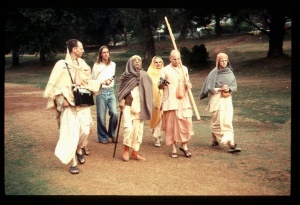SB 9.2.16: Difference between revisions
No edit summary |
(Vanibot #0054 edit - transform synonyms into clickable links, which search similar occurrences) |
||
| Line 23: | Line 23: | ||
<div class="synonyms"> | <div class="synonyms"> | ||
''karūṣāt'' | ''[//vanipedia.org/wiki/Special:VaniSearch?s=karūṣāt&tab=syno_o&ds=1 karūṣāt]'' — from Karūṣa; ''[//vanipedia.org/wiki/Special:VaniSearch?s=mānavāt&tab=syno_o&ds=1 mānavāt]'' — from the son of Manu; ''[//vanipedia.org/wiki/Special:VaniSearch?s=āsan&tab=syno_o&ds=1 āsan]'' — there was; ''[//vanipedia.org/wiki/Special:VaniSearch?s=kārūṣāḥ&tab=syno_o&ds=1 kārūṣāḥ]'' — called the Kārūṣas; ''[//vanipedia.org/wiki/Special:VaniSearch?s=kṣatra&tab=syno_o&ds=1 kṣatra]-[//vanipedia.org/wiki/Special:VaniSearch?s=jātayaḥ&tab=syno_o&ds=1 jātayaḥ]'' — a group of ''kṣatriyas''; ''[//vanipedia.org/wiki/Special:VaniSearch?s=uttarā&tab=syno_o&ds=1 uttarā]'' — northern; ''[//vanipedia.org/wiki/Special:VaniSearch?s=patha&tab=syno_o&ds=1 patha]'' — of the direction; ''[//vanipedia.org/wiki/Special:VaniSearch?s=goptāraḥ&tab=syno_o&ds=1 goptāraḥ]'' — kings; ''[//vanipedia.org/wiki/Special:VaniSearch?s=brahmaṇyāḥ&tab=syno_o&ds=1 brahmaṇyāḥ]'' — celebrated protectors of the brahminical culture; ''[//vanipedia.org/wiki/Special:VaniSearch?s=dharma&tab=syno_o&ds=1 dharma]-[//vanipedia.org/wiki/Special:VaniSearch?s=vatsalāḥ&tab=syno_o&ds=1 vatsalāḥ]'' — extremely religious. | ||
</div> | </div> | ||
Latest revision as of 23:49, 18 February 2024

His Divine Grace
A.C. Bhaktivedanta Swami Prabhupada
A.C. Bhaktivedanta Swami Prabhupada
TEXT 16
- karūṣān mānavād āsan
- kārūṣāḥ kṣatra-jātayaḥ
- uttarā-patha-goptāro
- brahmaṇyā dharma-vatsalāḥ
SYNONYMS
karūṣāt — from Karūṣa; mānavāt — from the son of Manu; āsan — there was; kārūṣāḥ — called the Kārūṣas; kṣatra-jātayaḥ — a group of kṣatriyas; uttarā — northern; patha — of the direction; goptāraḥ — kings; brahmaṇyāḥ — celebrated protectors of the brahminical culture; dharma-vatsalāḥ — extremely religious.
TRANSLATION
From Karūṣa, another son of Manu, came the Kārūṣa dynasty, a family of kṣatriyas. The Kārūṣa kṣatriyas were the kings of the northern direction. They were celebrated protectors of brahminical culture and were all firmly religious.